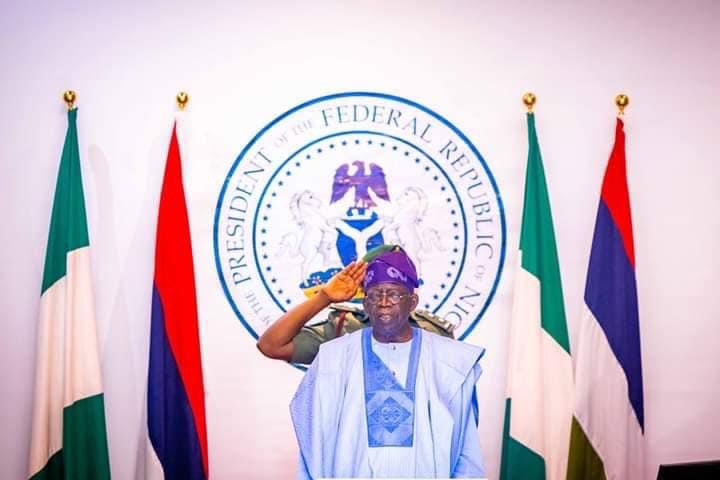
President Bola Tinubu’s decisive actions within his first 15 days in office have sparked a renewed sense of hope among foreign investors, leading to a surge in Nigeria’s economic prospects. In his inaugural speech, President Tinubu announced the abolition of the fuel subsidy, setting the stage for significant policy changes. Furthermore, he suspended Godwin Emefiele, the Governor of the Central Bank of Nigeria (CBN), with a promise to unify the country’s complex exchange rate system.
These bold moves by President Tinubu have been well-received by foreign investors, resulting in Nigeria’s dollar debt experiencing a significant upswing on Monday. Thys Louw, a portfolio manager at Ninety One in London, commended the new government’s actions, stating, “President Tinubu has demonstrated his willingness to tackle two critical issues that investors are closely watching: fuel subsidies and foreign exchange reform, all within a remarkably short period.”
Louw further emphasized the importance of sustaining this reform momentum, especially considering the challenging economic conditions inherited by President Tinubu. While Nigeria’s international bonds due in 2029 experienced a substantial surge on Monday, reaching their highest level since January, economists caution that maintaining this positive trajectory will be crucial.
The suspension of Governor Emefiele on Friday marked a crucial step toward unifying Nigeria’s multiple exchange rates, a demand repeatedly voiced by investors and multilateral institutions such as the World Bank. Analysts predict that it will take a few months to achieve this goal. Governor Emefiele was widely regarded as the mastermind behind a series of unorthodox policies, including the support of the naira, the implementation of a complex exchange rate system, and the provision of substantial loans to President Tinubu’s predecessor. These policies have been widely blamed for the current state of Africa’s largest economy.
Consequently, Nigeria’s State Security Service detained Emefiele on Saturday for “investigative reasons,” while an acting Deputy Governor of Operations was appointed in his place at the CBN.
The positive impact of these reforms was evident as Nigeria’s international bonds due in 2029 outperformed their emerging-market counterparts on Monday, even during a public holiday in Nigeria. Bloomberg data reveals that these bonds experienced a surge of up to 3 cents before closing at around 88 cents on the dollar. Additionally, the spread between Nigeria’s debt and US Treasuries fell by 38 basis points to 7.19 percentage points, according to the JPMorgan index.
Ayodeji Dawodu, Head of Africa sovereign and corporate credit research at BancTrust & Co. in London, highlighted that the changes at the central bank could spell the end of unorthodox monetary policies that hindered economic growth and eroded investor confidence, both domestically and internationally.
Under the Emefiele-led CBN, the US dollar was offered at controlled rates through various channels, resulting in limited liquidity for businesses and individuals. As a consequence, many turned to the black market, where the dollar traded at a steep 60% premium compared to the official rate.
Wale Edun, an influential member of President Tinubu’s advisory board, expressed confidence that the unification of exchange rates was imminent. He stated, “I believe it will be achieved within a quarter, rather than within a year. We are talking in terms of quarters, not years.”
Economists and experts perceive the previous administration of Muhammadu Buhari to have followed a more statist and socialist approach. Yemi Kale, the chief economist for Nigeria





Comments are closed.